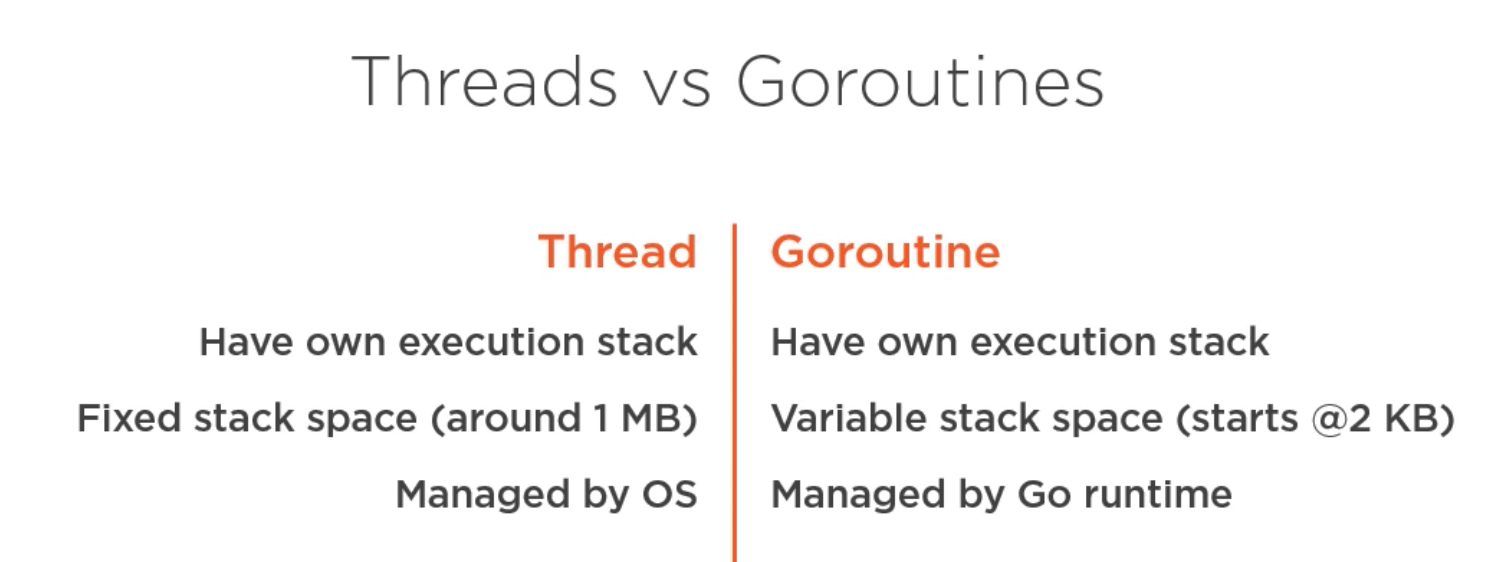A thread represents the ability for the operating system to run a task. Typical operating systems can often have thousands of threads active at a single time. Each one of those threads represents something that the operating system can be working on. It's not working on them all all of the time, but it is a task that can be operated on when it needs to be.
- They have their own execution stack
- has its own memory
- has its own call stack
- Typically have a fixed stack space (~ 1 MB)
- fixed by the operating system when the thread gets created
- if they need to do larger memory operations, they use the
Heap Spacein order to manage that.
- Managed directly by the operating system
- OS will generate a thread and give that to your program
A Goroutine
- Has a variable stack space (starting at ~2 KB)
- Has the ability to increase its stack space to take on more and more local operations as needed.
- Is generally more memory efficient than threads are, but with some overhead associated to manage stack space
- Is managed by the go runtime
- Go has threads as well, but manages the mapping of the goroutines onto the operating system threads for you.
- Allows you to create many more goroutines than threads
- The runtime provides an interface allowing a relatively small number of threads to work with all of those goroutines. And then the runtime schedules those goroutines onto the threads as they have things to do.
